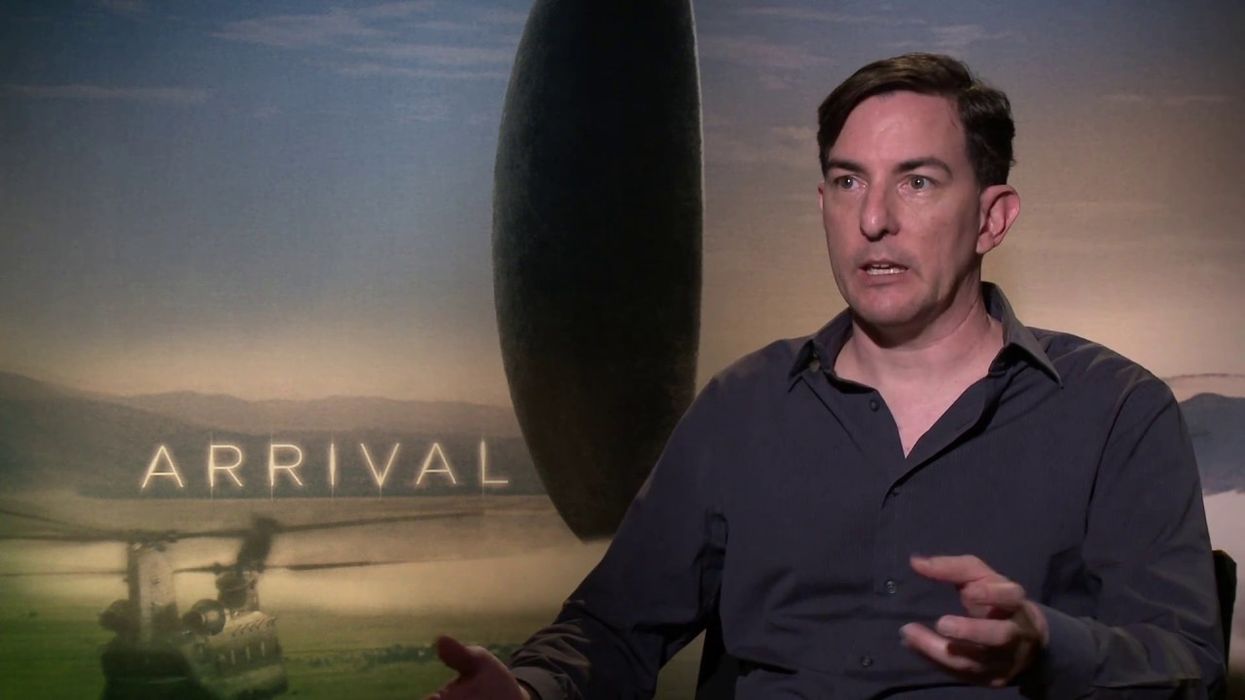4 Lessons from Eric Heisserer on Writing Science Fiction
The writing of Arrival was an especially fun (but hard) task for Eric Heisserer. Learn how he adapted a story into an incredible screenplay!

Writing an adaptation is not easy. You have to figure out the core of the story and make sure the screenplay version translates to the screen the same way the story affected you on the page. There are many hurdles to clear. But IP is all the rage in the industry right now, so if you're looking to sharpen a skill set that could lead to a project or more writing opportunities, adaptation is a good one!
That's why tday we'll take a look at how Eric Heisserer did it so well on Arrival.
Check out this video of Eric Heisserer from Behind the Curtain talking about his process, and then we'll go over four screenwriting lessons to take away from his process.
4 Lessons from Eric Heisserer on Writing Science Fiction
Eric Heisserer found Ted Chiang via a zine he read online. He instantly became obsessed, ordered a collection of his stories, and discovered "The Story of Your Life" while procrastinating from writing. I wish any of my procrastination led me to a more productive place than eating donuts.
Either way. when he dug into the science fiction genre, Heisserer learned some valuable writing lessons:
1. There are no rules: tell me a story.
Arrival is a complicated story that hinges on learning an alien language while simultaneously teach them our language. And as someone who writes out language daily, that's not easy. The main hurdle for Heisserer was that the aliens spoke in visual symbols. And when he wrote about them in the screenplay it dragged and read like a novel.
That's a very bad thing.
Heisserer was complaining to his wife about this hurdle and she suggested he just put in images of the alien words... so he did.
We've said it before, and we will say it again.
THERE ARE NO RULES (except plant and payoff).
Do whatever on the page helps you get the movie across to the producers, director, and actors so they can grasp the scenes and create the movie.
2. Adaptations should move a wider audience
When you read something special and acquire the rights to make a movie, it can be tempting just to do a straight adaptation and not to change things. But that's very likely not the best way to do it.
Heisserer loved the story he read, but he also knew it had to be cinematic. That meant instead of talking to aliens via video monitors, he wanted aliens to land all over the world. This added drama and intrigue to the entire story.
Furthermore, he also knew what to keep.
Many of the passages from the book about the mother and daughter bonding he kept directly because he knew they captured his heart and would be widely applicable as well.
So pick the best parts and fill in the rest.
3. Start out of order
One strategy Heisserer used to complete the first draft was to jump around writing scenes. He'd write the mother and daughter scenes first since they came from the book. And tackle other easy scenes after that. Then he got into filling in the blanks.
This strategy probably helped him combat writer's block and make sure pages were completed daily.
When you sit to write, consider making an outline or beat sheet so you know what scenes need to be written.
From there, pick the easiest scenes for you to write. This will build confidence as you get into the tougher parts of the story to write.
4. Show through action
One of the hurdles of Arrival was showing people learning how to read and write. It felt stale and in early drafts Heisserer just had characters walking around trying to act it out. When the producers asked him about it, Heisserer stood at a whiteboard and explained why the language was so hard to translate.
And they stopped him and said "That's the scene that should be in the movie."
So he wrote it.
What can you tell us through action? What's a short cut that a character can take to explain something complicated in a short way?
Those scenes make a screenplay's pages turn quickly.
Those scenes are what makes actors excited to play the part.
What's next? Hear directing lessons from Denis Villeneuve!
"Arrival" is a visual and storytelling masterpiece about how humanity finds itself through an encounter with aliens. So how did Villeneuve do it?

















